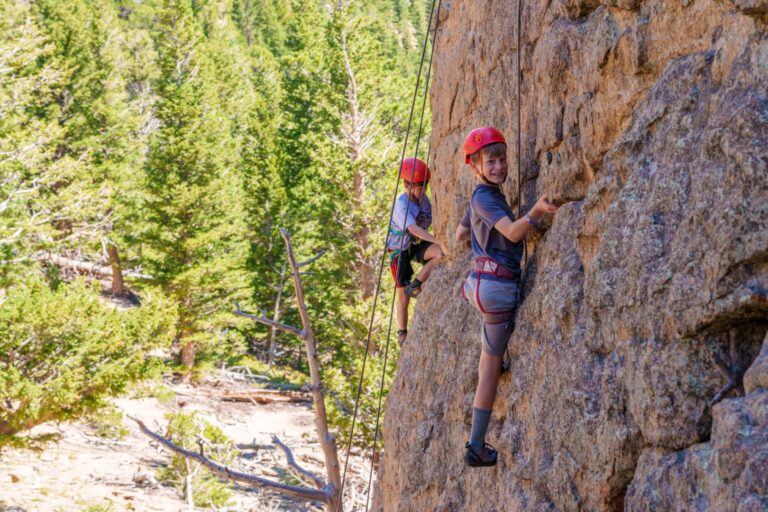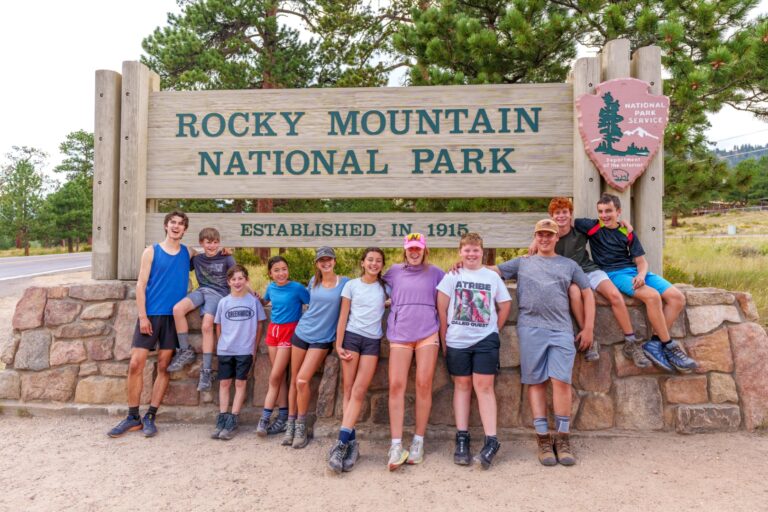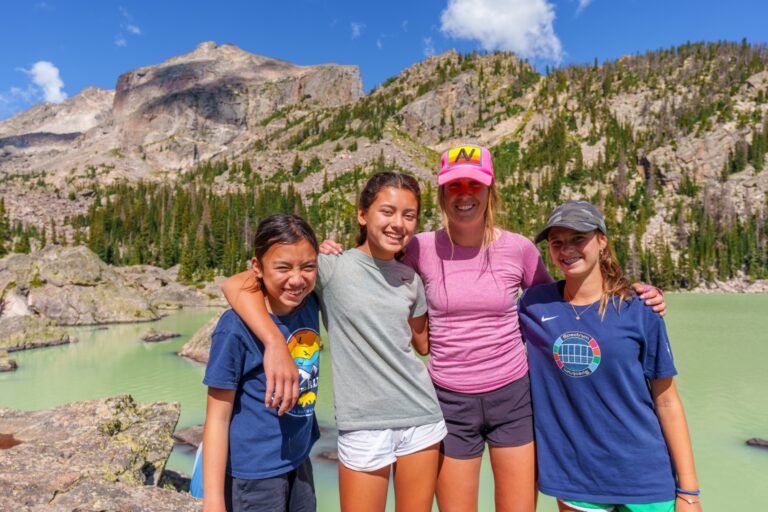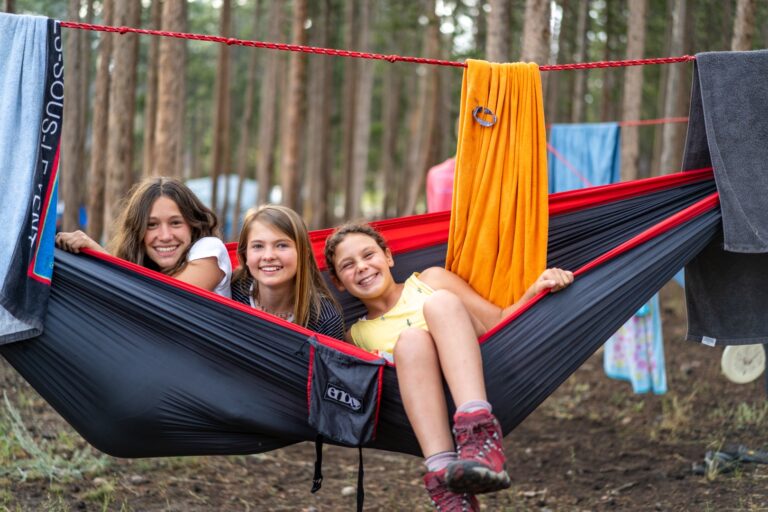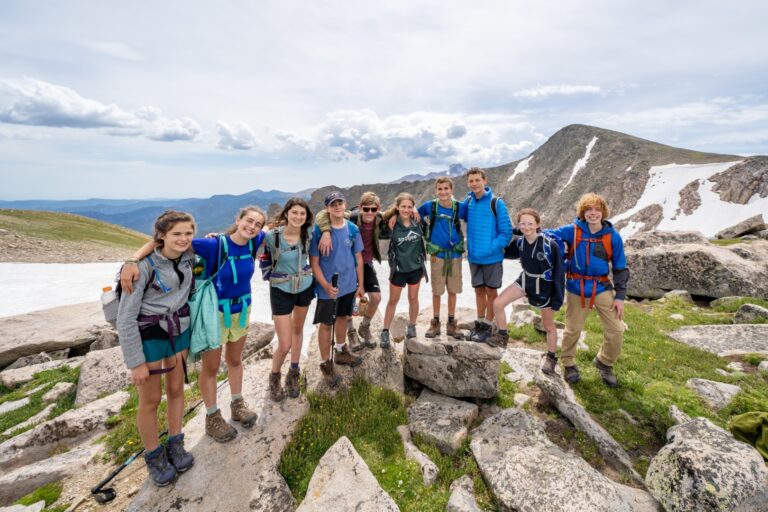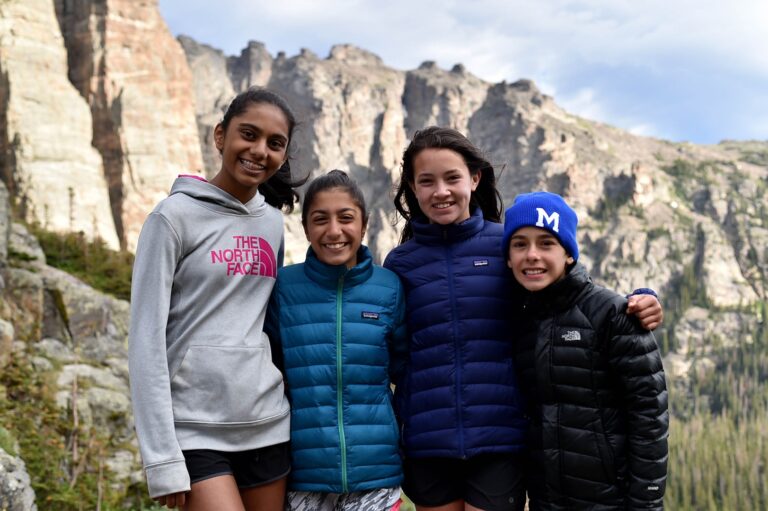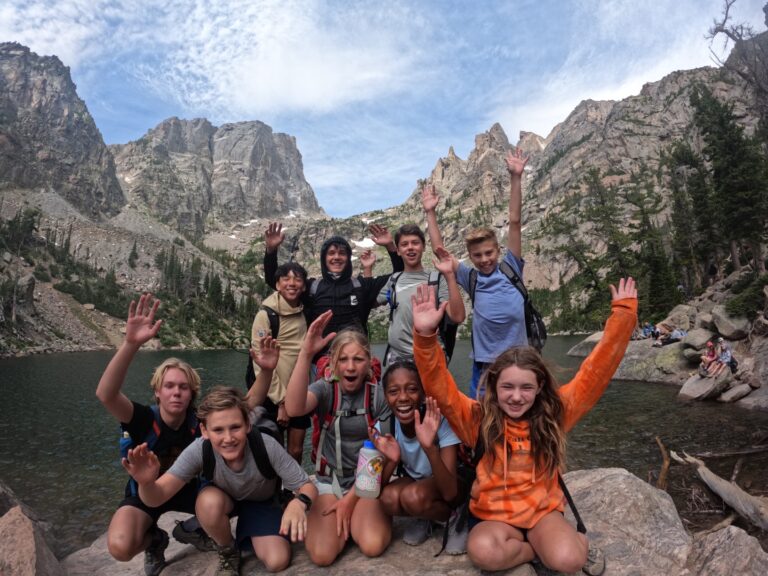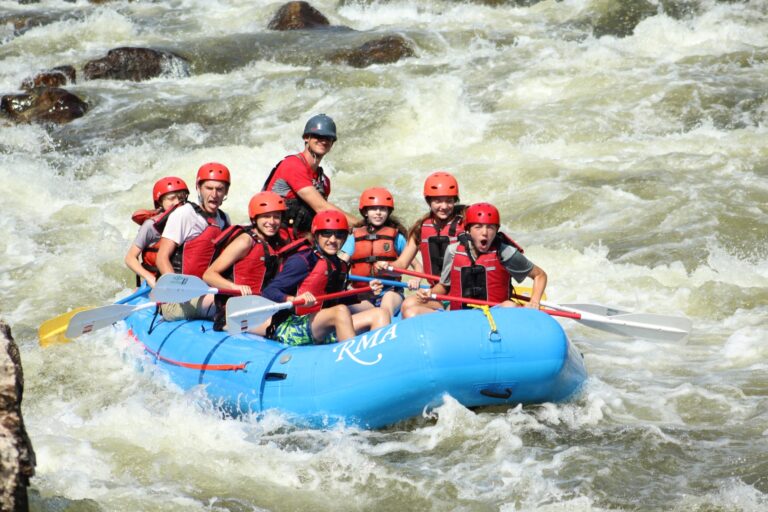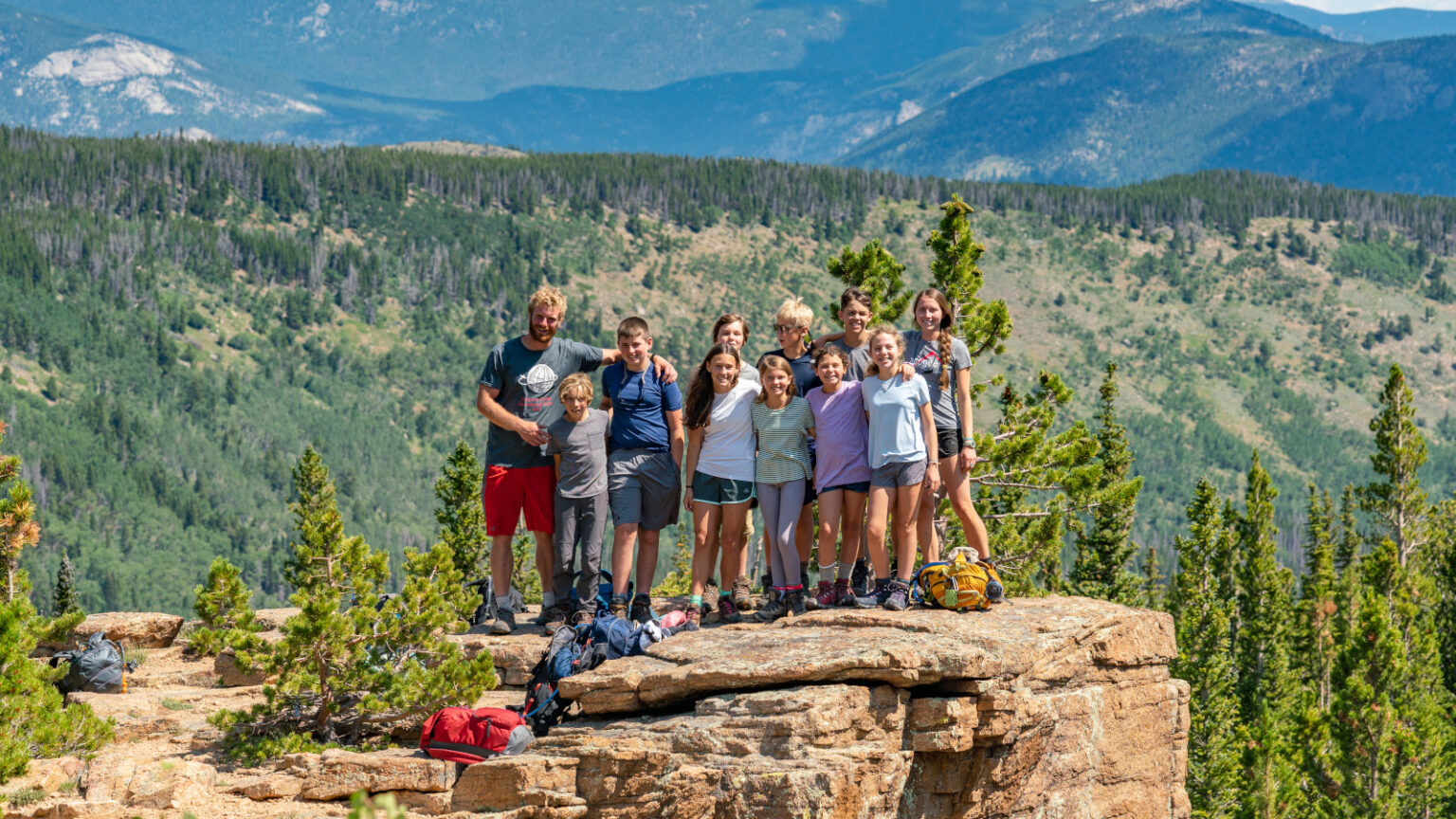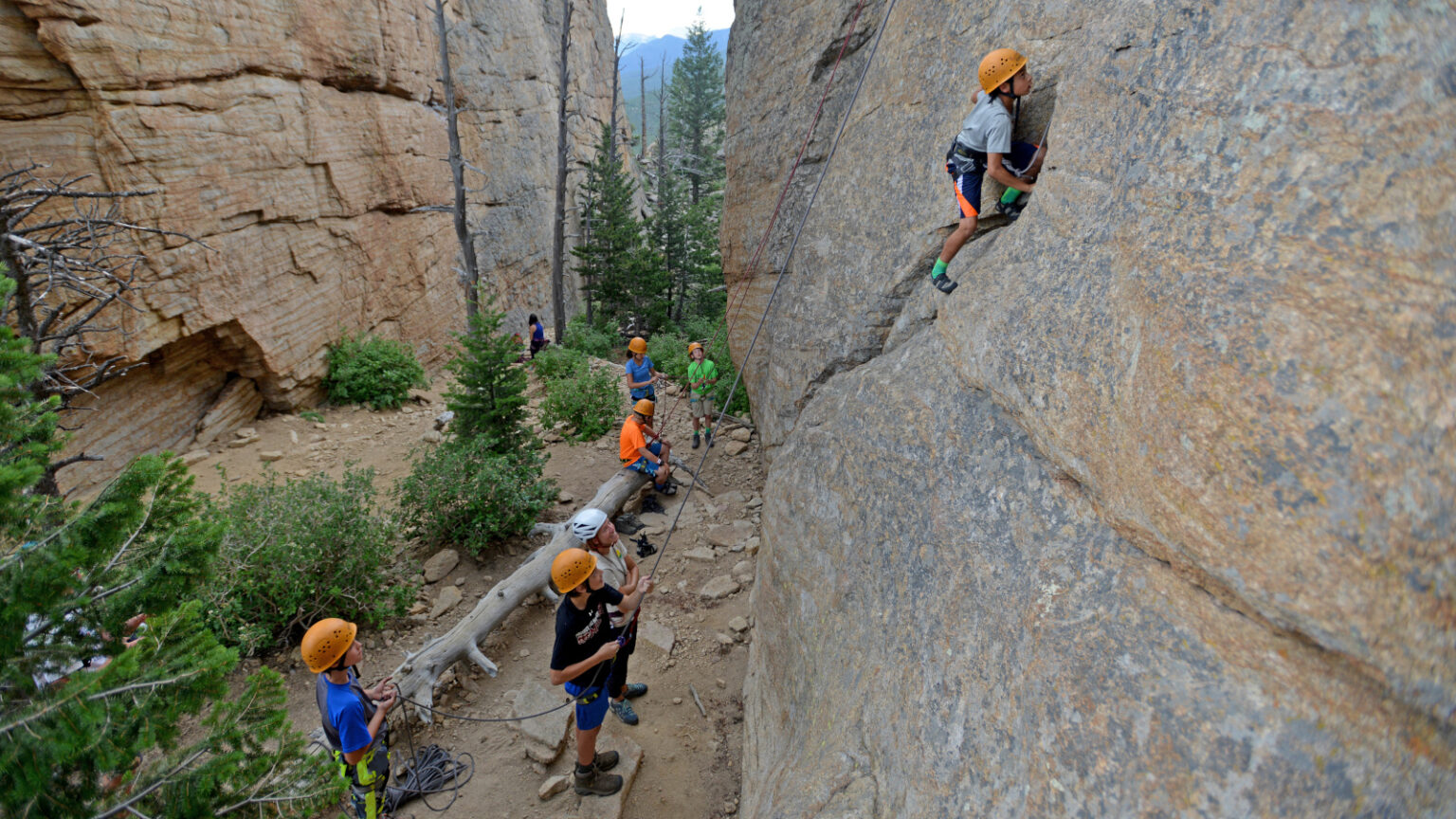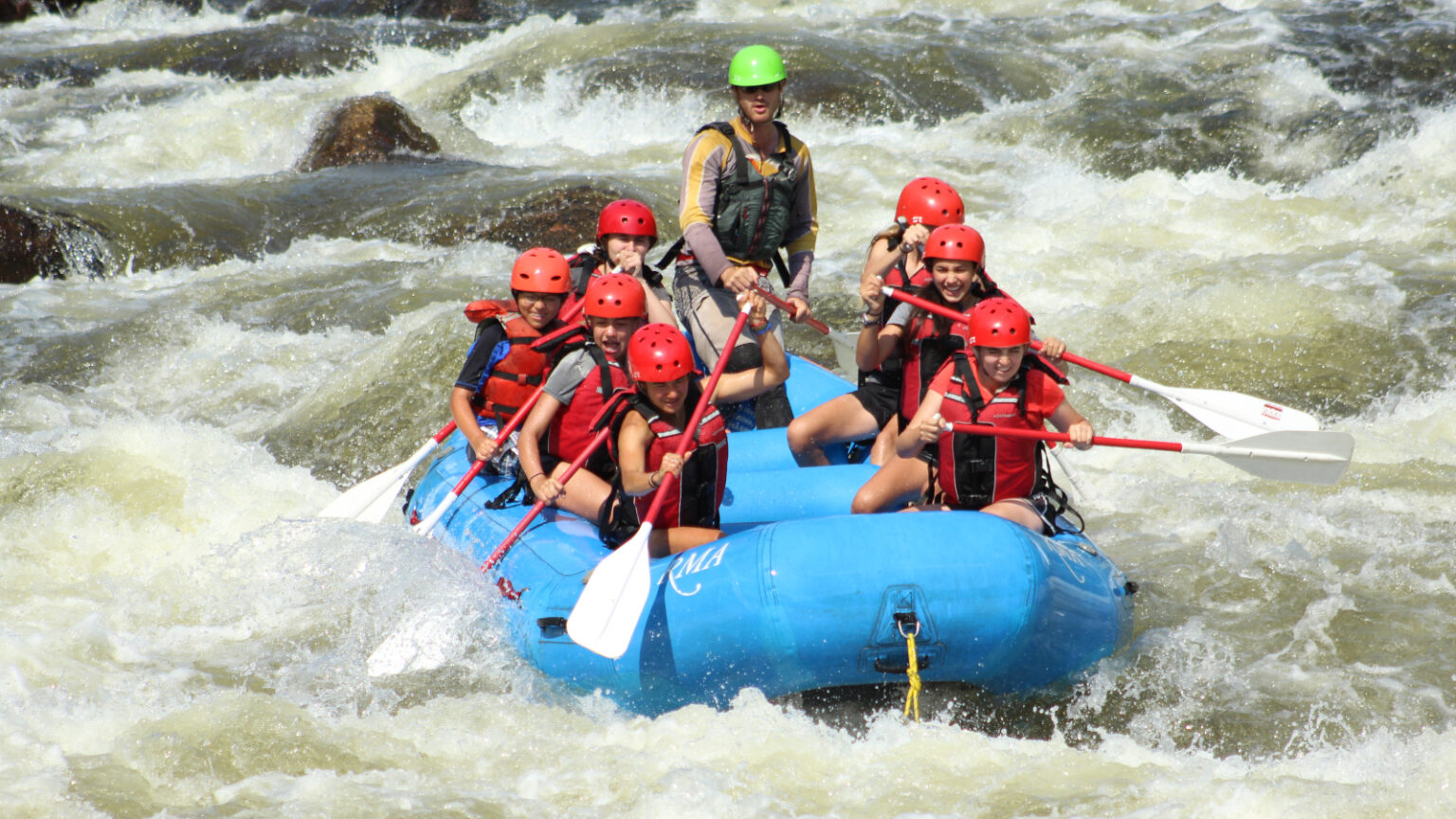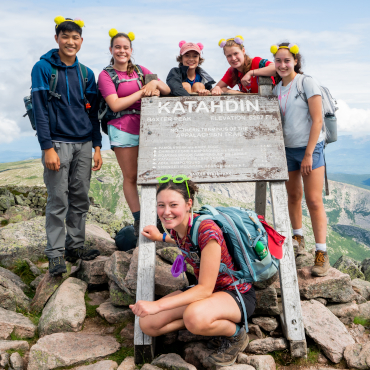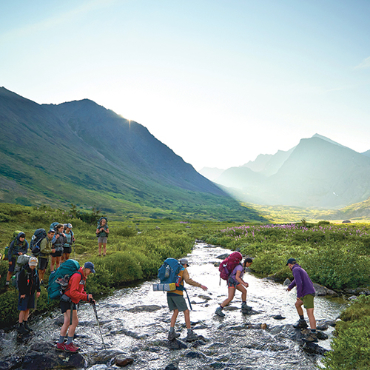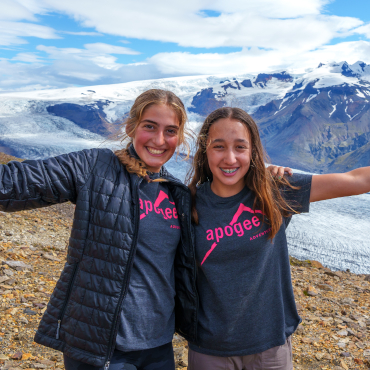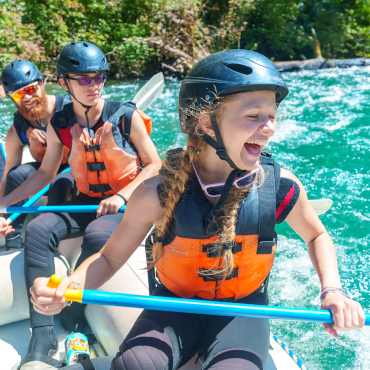Highlights
- Hike among the 14,000′ mountain peaks
- Rock climb with professional guides
- Whitewater raft the Poudre River
- Volunteer with local non-profit organizations
- Explore and celebrate in Boulder, Colorado
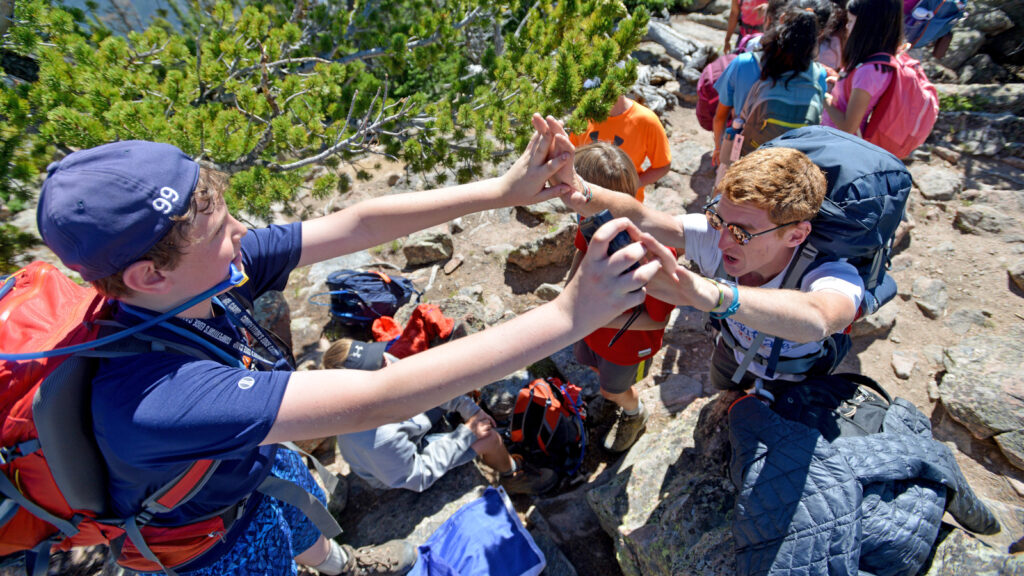
Trip Details
- Start: Denver, CO, USA
- End: Denver, CO, USA
- Age Range: 12 - 14
- Cost: $3,399
Dates
Jun 28 - Jul 6 (Limited)
Jul 10 - Jul 18 (Limited)
Jul 22 - Jul 30 (Available)
Trip Itinerary
Experience outdoor living at its freshest and finest on our Colorado’s Rocky Mountains adventure. Anchored in majestic Rocky Mountain National Park, this hiking trip for middle school students has it all: snow covered peaks, crystal clear mountain lakes, rushing rivers, abundant wildlife, and world-class hiking, rock climbing, and whitewater rafting. For nine days you will challenge yourself in this awe inspiring setting, inevitably forming strong friendships and a deeper appreciation for the natural world. Whether you’re a seasoned outdoorsperson, first-time camper, or somewhere in between, Colorado’s Rocky Mountains is a fantastic adventure camp for all!
Hiking Rocky Mountain National Park
After meeting at the Denver Airport, we will make our way to our first destination in Grand Lake. Here, we will spend two days exploring the spectacular views on the secluded trails of the western side of Colorado’s Rocky Mountain National Park. This is where we will likely see the highest concentration of wildlife: marmot, bald eagles, and the Park’s iconic elk. Next, we’ll visit the highest Visitor Center in the National Parks Service as we transfer eastward to Estes Park, traveling along along Trail Ridge Road, the highest paved road in the U.S. In Estes Park, we will spend another few days hiking and exploring the breathtaking scenery of the 14,000 foot mountains that surround our campsite.
Rock Climbing & Rafting the Poudre River
To give our hiking legs a rest, we will make our way to some of the best introductory rock faces in the US to spend a day rock climbing with professional instructors. The experience will have something for everyone; under the watchful eyes of our instructors, we will learn the basics of climbing and traverse between two rock faces – all with an element of team-building incorporated into our day. We will then transfer to the whitewater of the Poudre River outside of Fort Collins, where we’ll experience, with professional guides, the thrills of class II, III, and even the occasional class IV rapids.
Community Service & Celebrating in Boulder
For our last stop, we’ll head to the bustling mountain town of Boulder, CO. In the shadow of Boulder’s iconic Flatirons, we’ll get our hands dirty as we dive into a rewarding community service project. To cap off our Colorado teen hiking adventure, we’ll spend the afternoon exploring Boulder before celebrating everything we’ve accomplished together with a final dinner on the town.
Reviews
Frequently Asked Questions
Please see our General FAQ page for many more frequently asked questions and answers!
How physically challenging is CRM?
Given a rating of Challenge Level 3 (out of a maximum 10), we consider CRM to be a beginner hiking trip that any moderately fit, motivated student can successfully complete with some prior preparation. Compared to similar hiking trips, we believe that CRM is similar in challenge level to New England Mountains & Coast, but easier than Golden State Adventure and Maine’s Downeast Explorer. Please note that all of Apogee’s Challenge Levels are not scientific and are subjectively calculated by the Apogee staff.
Where will my child be sleeping at night?
Our CRM groups will be camping every night in established, front country campsites over the course of our trip. Leaders will separate students by gender into tent groups and will rotate those groups several times over the course of our trip. Students will share a tent with one or two other students.
Is there any “backcountry” hiking on this trip?
In a word, no. All of the hiking on our CRM trip is on established and frequently-used trails. Some of the hiking includes trails that are more than one hour from definitive care (this is the usual definition of “backcountry” hiking). That said, our CRM groups camp in established campgrounds every night (the majority of which are located inside Rocky Mountains National Park), and students can expect regular access to running water. Showers will not be available at every campsite, but students can still expect to shower regularly.
How much weight will my child carry on the hiking portions of this trip?
Not a lot. As there is no overnight backpacking on this trip, your child will be carrying between five and ten pounds during their longer hikes, composed mostly of an extra layer of clothes, rain gear, water, and snacks.
How will the altitude affect this trip?
Our CRM groups will be spending most of their trip between 7,500 – 8,500 feet above sea level. There will be occasions (whether hiking or driving) when are groups approach 12,000 feet, but this will be for relatively short periods of time. Our groups will likely feel the effects of altitude, but they’ll hike slower than usual and take plenty of breaks. Our leaders will closely monitor every student to ensure that everyone is drinking plenty of water. In the event of true altitude sickness, our leaders will seek lower elevation and definitive care as necessary for any affected student.
I’m worried about wildfires affecting my child’s trip. What are Apogee’s wildfire contingency plans?
Like you, we’ve been concerned as we’ve followed the wildfires throughout the West over the last several years. While the devastation has been alarming and often heartbreaking, the good news is that our trips have not, for the most part, been majorly impacted by the wildfires. That said, we have changed itineraries in the past without hesitation when necessary. During the summer, we monitor new and existing wildfires on a daily basis. When it comes to the need to move a group or otherwise change an itinerary, we will always err on the side of caution. In the event that a wildfire – either the fire itself or the resulting air quality – becomes too close for comfort, we have evacuation and contingency plans for each location and activity of our trip. We will make sure to keep families in the loop with up-to-date information if we need to change the itinerary in any way.
What does the community service portion of this trip entail?
The specifics of our community service projects and the number of hours we volunteer varies slightly from year-to-year. In the past, we have worked with a local land trust on a variety of tasks including seed spreading, invasive species removal, and trail maintenance. Students can expect 3-5 hours of community service work, usually over the course of one day.
How will I communicate with my child while they are on this trip?
We are a technology-free program, meaning that your child won’t have access to their phone or other electronics over the course of their trip. We have one mail stop on Colorado’s Rocky Mountains trip; parents, relatives, and friends are welcome to use this to send letters or postcards to a student. Note that we do not allow packages to be sent – letters and postcards only. If you have an urgent message to get to your child, please call our office and we’ll work to get you connected with your child.
My child will be flying to this trip start. How will they connect with their leaders?
Please note that Apogee staff members do not travel with students; our trip leaders will already be in Denver on arrival day and will stay in Denver after the trip ends. Apogee staff and trip leaders will have a detailed flight itinerary for each student who is flying to the trip start and will be at the airport to greet them on arrival. Once students are with their leaders, they will call home to let their parents know they have arrived and are with their group. Please see our blog post for specifics regarding students traveling as Unaccompanied Minors. Further, we encourage you to coordinate travel with other attendees; we’re happy to put you in touch with other enrolled families from your region. We will provide enrolled families with a Travel Information document covering details specific to traveling to and from Denver, including airport information and arrival and departure time windows. Please contact Apogee with any specific questions or concerns regarding drop-offs and/or pick-ups.
Aside from the trip cost, what are the additional expenses for this trip?
Apogee’s tuition costs are meant to be all-inclusive and include all meals, accommodation, and activity fees. The most significant additional expenses on our Colorado’s Rocky Mountains trip will include travel to and from Denver, CO, hiking boots, sleeping bag and pad, and personal gear. We suggest that you review the packing list (downloadable on this webpage) to determine what personal gear you already own and what you might need to acquire for this program. Please also check out our Gear Recommendations blog post for links to our personal recommendations.
What is the maximum number of students I can expect on my child’s Apogee trip?
There are never more than twelve students on an individual session of this trip. Additionally, we limit enrollment by gender to two-thirds/one-third. Groups are always led by two qualified leaders.
